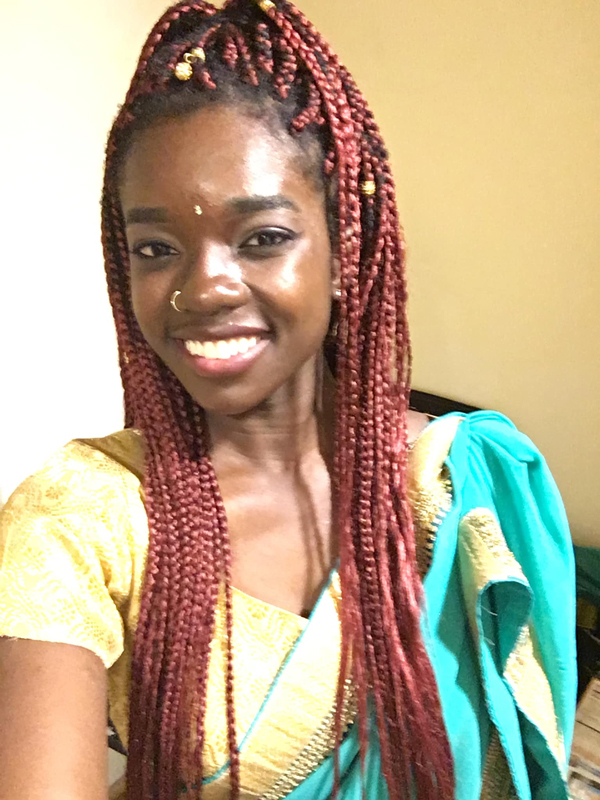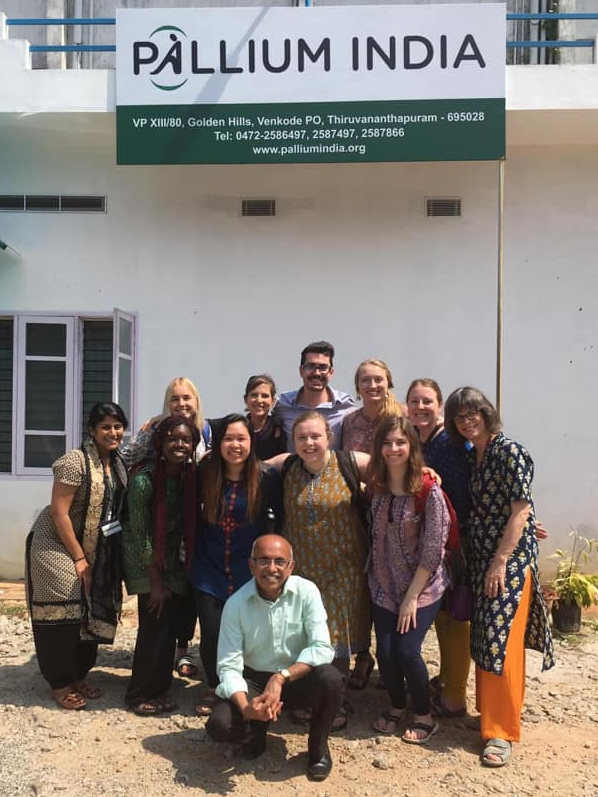
Hi,
My name is Eunice Assem and I’m a senior majoring in nursing. This past winter I had the opportunity to take a course on palliative care in Kerala, India. Going into the trip, I thought I was going to have a hard time adjusting to the culture immediately. That’s not to say my experience didn’t have any hardships, but upon arriving in India, I was ready to dive in. So much to the point that I slept for only about 30 minutes even though it was about 3 a.m. there (laughs).
While learning about Indian culture, I also had opportunities to connect and share parts of my own cultural identity. I was born in the United States, but my family’s origin is from Ghana in West Africa. In India, there were many different shades of tan and brown skin. Yet, there were quite a few natives who would often do a double take and wonder about my ethnicity while passing by. Growing up in the States, I’ve been asked about my culture but the questions often come from some previous knowledge or even stereotypes of African Americans. Therefore, it was interesting to be able to share myself without any outside influences. There was an interest to just learn about my culture rather than confirm a bias. Most often, I was asked about my hair and how it was done, which was in braids for the trip. I also was able to find similarities between Indian and Ghanaian cultures. One similarity was how clothes were made. Both cultures often had traditional tops more fitted in the shoulders for women. There was also a strong sense of community and helping each other even if not related by blood. We often saw this on our home visits to patients, where some were cared for by their neighbors or family friends.

Although there were a variety of wonderful experiences in India, of the greatest was the opportunity to work with Dr. Rajagopal (Dr. Raj for short). He is a world-renowned palliative care physician and owner of the local clinic, Pallium India. The biggest lesson he taught me was that we as healthcare providers can, and should, be taking our abilities out into the community. We don’t need to always wait for patients to come to us. Rather, we should reach out and meet people where they are. In many cases, they may not even be that far from us. Some of our patients with the greatest need were right by the clinic, as well as next to some of our more fortunate patients. As big as this world may be, we’re never too far from each other to help one another.
Leaving India, I learned just how much I can offer to the world and that I have a role in it. I came to India expecting to simply listen and learn but left giving so much more. From practicing health screenings on the Pallium staff, to sharing a bit of American culture with local school students (we sang the Iowa fight song, and danced to a popular Malayalam song, both which they really liked!), this trip showed me that we all can contribute something. We just need to step out of our comfort zones and try to embrace as much of the journey as we can. Even with some of the lows, such as language barriers and climate change (there were hardly any days below 90 degrees), this incredible experience has helped shaped me in ways I never imagined. Hopefully there are more students each year who get to have this same experience.
Nandi നന്ദി, which means “thank you” in Malayalam,
Eunice
Please note that the opinions and views expressed by diversity ambassadors are solely those of the students and do not reflect or represent the views of International Programs or the University of Iowa.